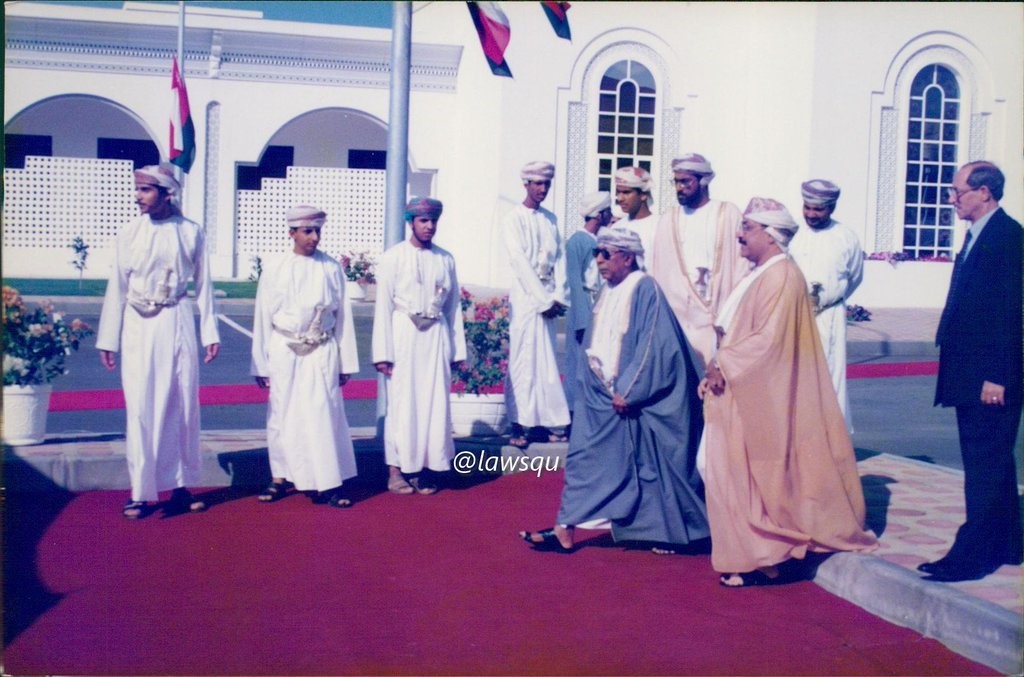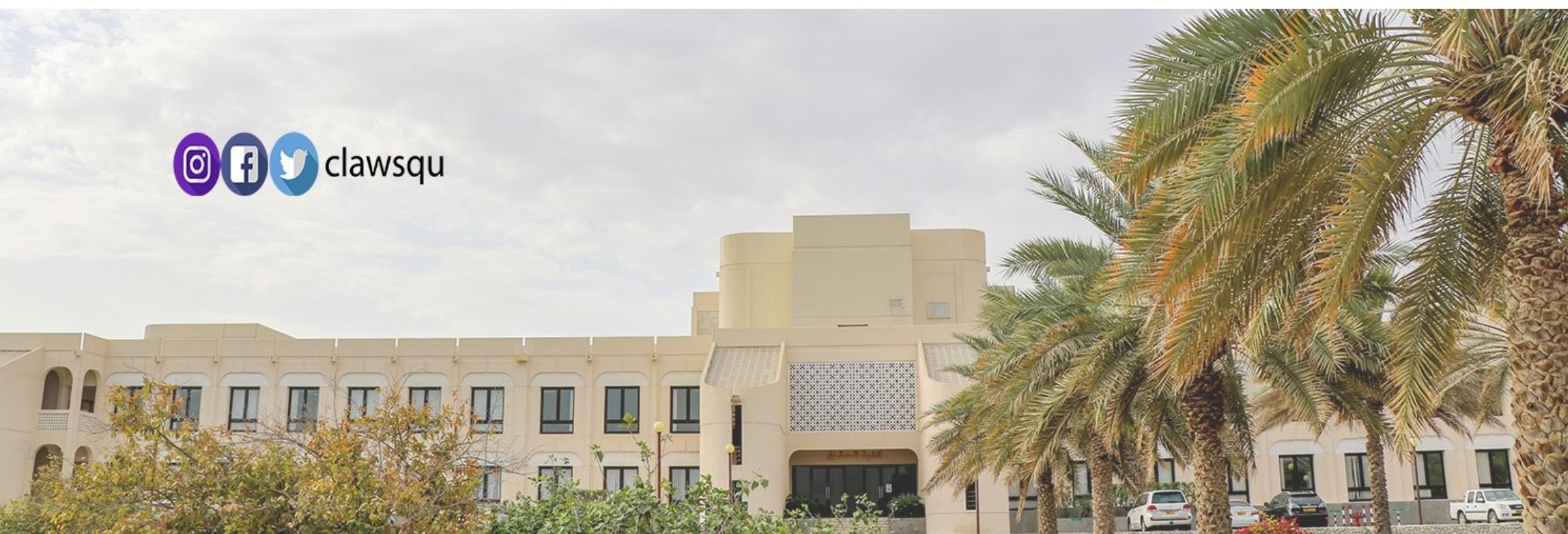
College of Law: Founding, Mission, and Objectives
The College of Law was established on May 28, 1997, by Royal Decree No. 26/97. It initially started as the College of Sharia and Law in Al-Waṭīyah, aimed at preparing generations of specialists and researchers in the fields of legal and Sharia studies.
The college received its first cohort of 120 students for the academic year 1997/98. Classes commenced in the first semester on Saturday, 19 Jumada al-Awwal 1418 AH, corresponding to September 20, 1997.
The college was inaugurated under the patronage of His Excellency Sayyid Faisal bin Ali bin Faisal Al Said, Minister of National Heritage and Culture, on Sunday, 7 Sha’ban 1418 AH, corresponding to December 7, 1997.

On June 22, 2005, Royal Decree No. 55/2005 was issued to change the college's name from (Sharia and Law) to College of Law starting from the 2005/2006 academic year, transferring its affiliation to Sultan Qaboos University upon the completion of its facilities on the campus.
The following year, Royal Decree No. 38/2006 was issued, which stipulated the transfer of the college's affiliation to the university starting from the beginning of the 2006/2007 academic year, while remaining in its original location in Al-Waṭīyah. It was later moved to its current location on the Sultan Qaboos University campus in 2012.
The college offers undergraduate and master's programs in law and will introduce a doctoral program in law in the near future.
College’s Vision
The college seeks to achieve a distinguished position within its regional and international surroundings through the quality of its academic programs, its excellence in scientific research, and its ongoing contribution to community service.
College’s Mission
To excel in both theoretical and practical legal education while serving the community by producing graduates equipped with critical thinking and research skills.
College’s Objectives
To fulfill its mission, the College of Law aims to achieve the following objectives:
- To provide distinguished university education in legal sciences that complies with quality and accreditation standards.
- To supply the community and the Omani labor market with qualified legal competencies, both academically and practically, for work in all legal fields.
- To enhance and elevate the level of scientific research to serve the Omani community.
- To contribute to achieving the university’s mission, vision, and strategic plan.
Intended Learning Outcomes (ILOs)
Students will acquire the knowledge and skills that enable them to pursue various legal professions and jobs. Graduates will have the ability to address all legal issues, regardless of the applicable law or the international treaty relevant to the matter presented. Graduates will have the capability to address all legal issues in both Arabic and English. Demonstrate the ability to use modern techniques in legal scientific research. Demonstrate adherence to professional and ethical standards. Ability to lead and take responsibility.
College’s Values
- Integrity: Means honesty and loyalty to commitments.
- Objectivity: Means avoiding personal bias and interests.
- Cultural Diversity: Essence lies in respecting others in the face of differences.
- Equality: Means treating similar positions equally.
